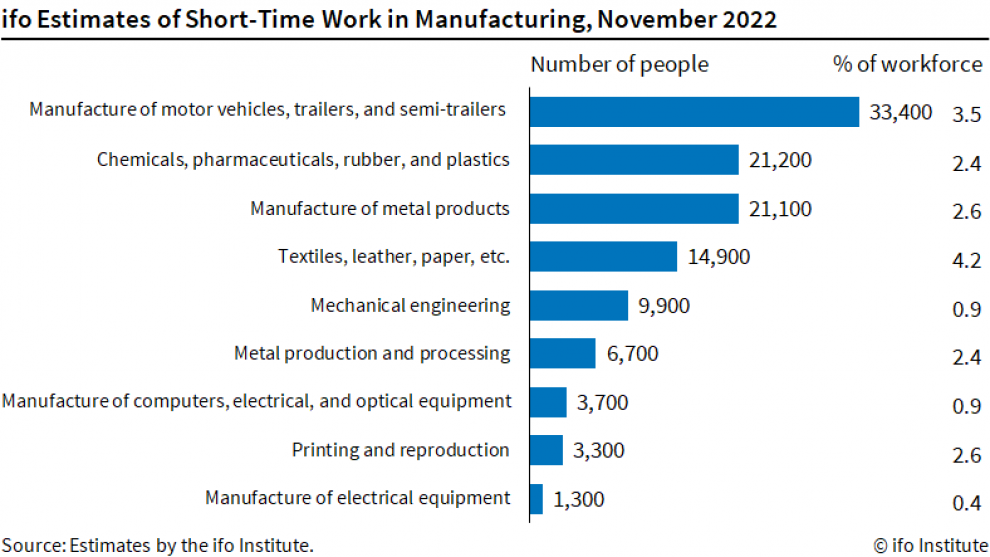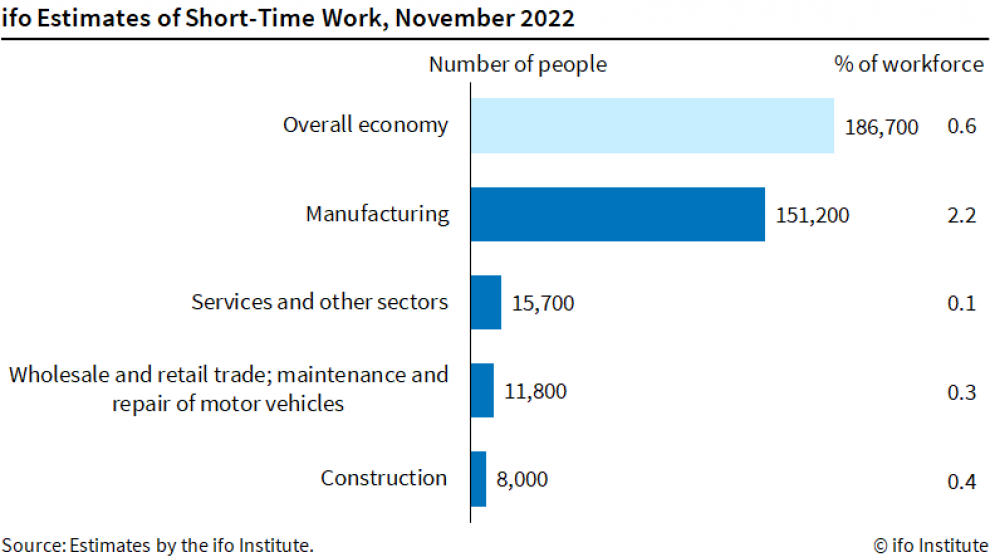
German economists expect bleak future, the industry's had enough
Earlier, experts expected exports to decrease by around half of what the actual contraction turned out to be, with nearly half of the industrial companies predicting a further fall. Meanwhile, energy-intensive companies are once again forced to cut working hours. Since this summer, the number of short-time workers has increased from 76,000 to 187,000.
Statistical Office reports drastic drop in exports
German companies in the foreign trade sector continued to feel the effects of the global economic slowdown in October.
In October, Germany exported a total of 133.5 billion euros worth of goods. The US was again the largest single market for „made in Germany” products in October, with 13.9 billion euros. However, exports to the world’s largest economy fell by 3.9 per cent. Exports to China were unchanged from the previous month at 8.9 billion euros. 71.4 billion euros worth of goods went to other countries in the European Union, down 2.4 per cent.
Experts expected exports to fall by just half as much.
„Not only for German consumers, but also for exports, times are going to get tougher,” said Andreas Scheuerle, an economist at DekaBank.
According to a survey by the German Chambers of Industry and Commerce (DIHK), only 16 per cent of industrial companies expect their exports to grow in the next twelve months, while 40 per cent expect lower exports.
Industry’s had enough of austerity environment
Meanwhile, the fact that companies in energy-intensive sectors are continually forced to cut costs is a growing problem for the German industry. Several companies were forced to drastically cut working hours once again, amongst other measures.
Since the summer of this year, the number of people in Germany working shorter hours has risen from 76,000 to 187,000, according to estimates by the Ifo Institute for Economic Research. The impact of the massive increase in gas and electricity prices is particularly felt by industrial companies, with the number of people working reduced hours rising from 59,000 to 151,000. In November alone, 33,400 people in the automotive sector and 21,200 in the chemical sector worked substantially shorter hours.

www.ifo.de

www.ifo.de
As cold weather arrives, gas storage levels drop swiftly and significantly
Companies have already indicated that they are unable to further reduce their energy consumption and thus their production. If they did so, factories and plants could close and many could lose their jobs. Meanwhile, residential consumers are not willing to freeze at home, and Germany’s gas consumption has suddenly soared with the onset of the cold weather. Reservoirs were at 98 per cent a few days ago, with a 0.24 percentage point drop from Wednesday to Thursday, the Federal Grid Agency says, meaning Germans consumed so much natural gas from the reservoirs in a single day. People have started to heat more even before the real winter frosts had arrived.
Although German and EU authorities keep stressing that „supply is currently stable”, the Federal Grid Agency continues to urge people to save energy at home as much as possible to avoid supply disruptions in 2 months’ time, so concerns remain on the part of the agency. Consumption is expected to rise further in the coming days, as the outside temperature is almost one full degree colder than the average temperature in the same period measured in recent years.
Tags:

